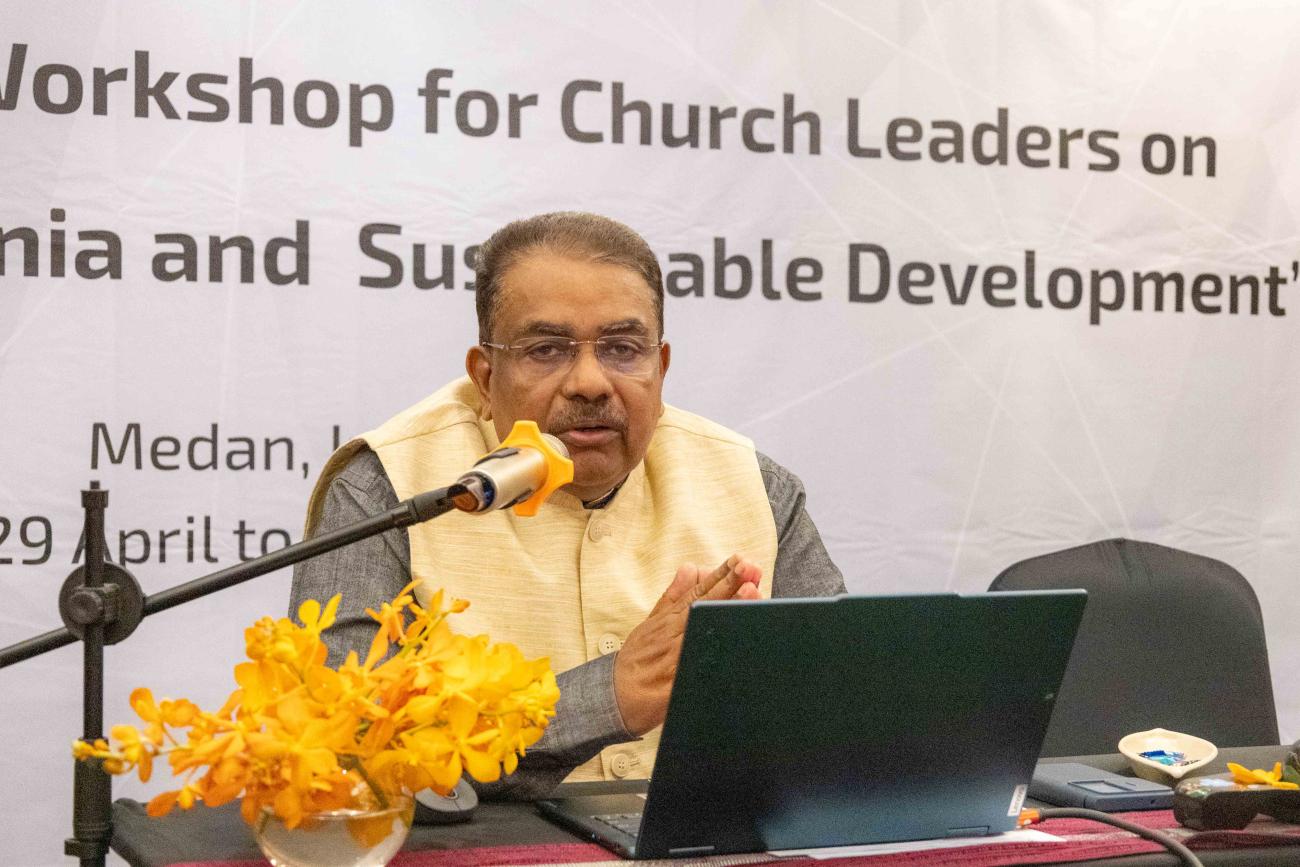Ecumenical diakonia should be instrumental in developing a coordinated strategy to alleviate sufferings of vulnerable people, says CCA General Secretary

Dr Mathews George Chunakara delivers the thematic address on ‘Ecumenical Diakonia and Sustainable Development'
Medan, Indonesia: In a thematic address delivered at the opening session of the Asia Regional Training Programme on ‘Ecumenical Diakonia and Sustainable Development', the General Secretary of the Christian Conference of Asia (CCA) Dr Mathews George Chunakara stated, “Ecumenical diakonia should be instrumental in developing a more consistent, coordinated, and coherent approach and strategy to alleviate the sufferings of the most vulnerable people and communities, when the world experiences more fragmentation today.”
The training programme is being organised jointly by the CCA and the World Council of Churches (WCC), and began on 29 April 2024 in Medan, North Sumatra, Indonesia. Thirty-five participants, mostly second-line church leaders from CCA and WCC member churches, ecumenical councils, and networks across Asia, are attending the training.
The CCA General Secretary gave an overview of the concept of diakonia, its theological undergirding, and the development of ecumenical diakonia over the decades, as well as the issues that need to be addressed to attain the Sustainable Development Goals (SDGs) of the United Nations.
The CCA General Secretary outlined Christian faith responses to the United Nations' Sustainable Development Goals (SDGs), which include ending poverty and hunger, health, inequality, education, climate, promoting gender equality, peaceful coexistence, and partnerships or collaboration.
He emphasised the role of churches in attaining these SDGs and called upon them to be involved and participate in motivating people and communities to work together and achieve the SDGs.
Referring to the SDGs and the church’s response, Dr Mathews George Chunakara said SDGs are calling the attention of all those who are concerned about humanity; it aims at ending poverty and other deprivations. When we think about the role of the churches in promoting and achieving the targets of the SDGs, we are reminded of the motivating factor for us, “For God So Loved the World” (John 3:16).
“Ecumenical diakonia should involve more than the giving of money or good services, more than the sharing of resources and personnel. Diakonal support of Christians has no right to anticipate or expect feelings of gratitude or ties of obligation and dependence in the name of sharing of resources or personnel. In many contexts, our diakonal mission often creates resentment in other cultures, as they are forced to surrender their dignity for the sake of some funds. However, it is unfortunate that those interested in creating relations of dependence often use diakonia as a means of domination,” Dr Mathews George Chunakara further added.
Dr Manoj Kurian, Director of the Churches' Commission on Health and Healing, extended greetings to the participants on behalf of the World Council of Churches. He referred to diakonia as a way of following Jesus and emphasised the need for capacity building in sharpening churches' witness through diakonia.
The capacity-building initiative of CCA and WCC is aimed at providing opportunities for learning about ecumenical diakonia and sustainable development, and at enhancing the capacities of Asian churches in relation to ecumenical diakonia and sustainable development.










